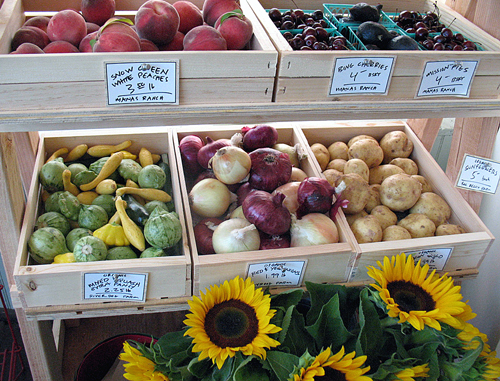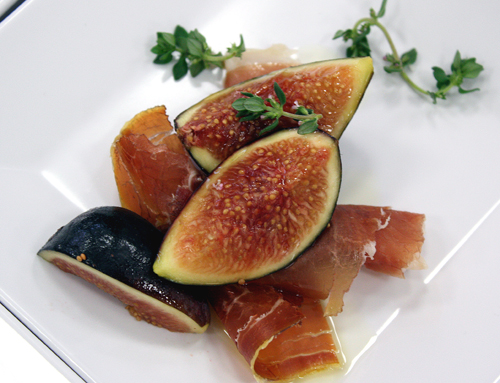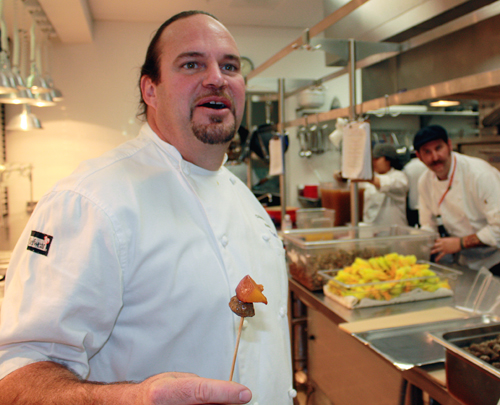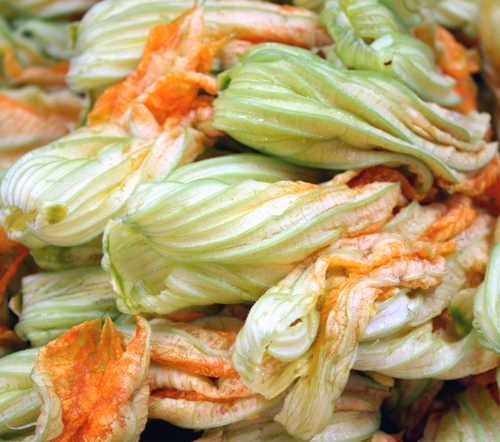Zanotto’s Monthly Wine Dinners — A Deal If There Ever Was One

Imagine a six-course dinner with six wine pairings — for all of $35 per person.
You don’t have to don fancy duds to enjoy it, either. But you do have to make reservations early, as it sells out faster than you can uncork a bottle of Chardonnay.
Zanotto’s Family Market in San Jose’s Rose Garden neighborhood may very well have the best wine tasting deal around.
The family-run supermarket, which has been in business since 1967, offers the wine dinner every last Wednesday of each month. Tickets go on sale three weeks before, and usually sell out within the first week. Indeed, since the store started hosting these dinners 30 months ago, 29 have sold out.
“We just wanted to create a casual learning experience with great food and wine,” says store Manager Fred Zanotto.
Wednesday was always the store’s slowest day, Fred Zanotto explains. So, he decided to start holding wine tastings to try to entice more shoppers into the store. They proved so successful that he decided to add dinner to it, too.

Picture a neighborhood block party held inside a grocery store. That’s what this fun, lively dinner is like, where so many folks are regulars, attending each and every one.
Tables are set up inside and out (except for the winter) to hold 237 people (129 in winter). Folks, who have purchased tickets ahead of time at the store or over the phone, start lining up early by the ice cream freezers to get the best pick of seats, which are first-come, first-serve. Reserved seats are only available if you have a party of six or more.
The tables are draped with floral cloths that can be purchased in the store. The food, served family-style, is arrayed on pretty, rustic platters, which also can be purchased at the store. Fred Zanotto’s two sisters-in-law, who normally man the store’s deli, create the food to pair with the wines. Many of the ingredients — you guessed it — can be purchased at the store.
Cutlery and plates are of the plastic variety. And you get only one wine glass. But that just adds to the informal charm of the event.
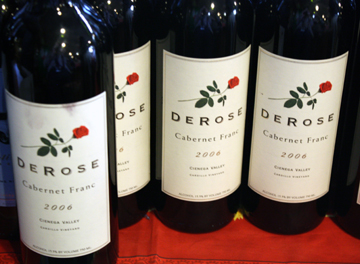
The wineries featured each month are from all over the world. But six months of the year are dedicated to spotlighting local wineries.
The wine dinner I attended in September featured DeRose Vineyards of Hollister. The winery has 100 acres of vines, including 40 acres that are dry-farmed. Those vines, which get no water, produce intensely fruity wines, says winemaker Pat DeRose.
The wines poured that evening included the Parrone 2007 Sparkling, DeRose Chardonnay 2006, Continental Cabernet, Cabernet Franc, Nick DeRose Sr. Zinfandel 2006, and the Negrette 2006. The latter, made from 115-year-old vines, is such a rarity these days that even in its native France, there are less than 100 acres grown there today. DeRose grows 10 acres that are dry-farmed. The result is a wine bursting with jammy plum and berry flavors, and gentle tannins.
Zanotto’s also provides recipes to take home from each event. Dinner that night was as follows:

